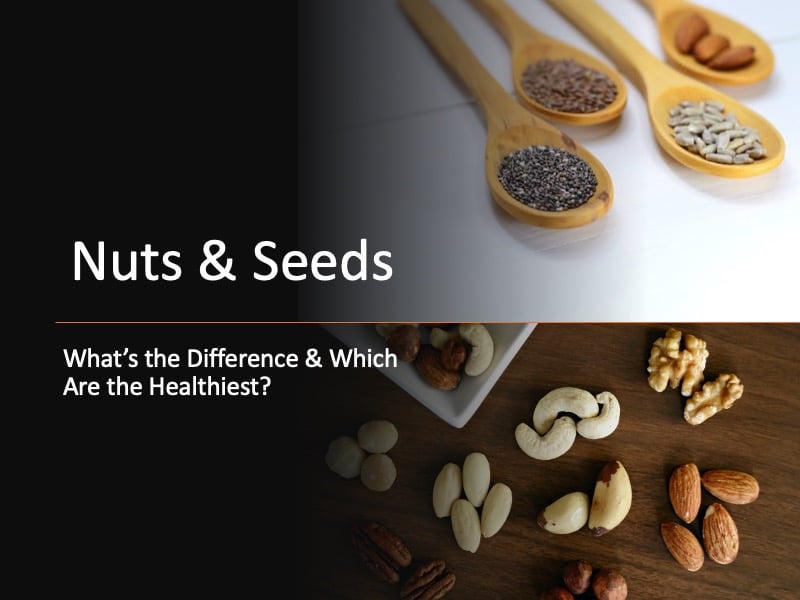Nuts and Seeds: What’s the Difference & Which Are the Healthiest?
Nuts and seeds are tiny nutritional powerhouses, delivering a concentrated dose of protein, healthy fats, vitamins, and minerals in every bite.
Whether tossed into a trail mix, sprinkled over salads, or eaten straight from the bag, they provide a simple and delicious way to fuel the body with essential nutrients.
Although the terms “nuts” and “seeds” are often used interchangeably, they have distinct botanical classifications.
Despite their differences, both nuts and seeds pack a nutritional punch, offering a rich source of plant-based protein, heart-healthy fats, antioxidants, and fiber.
Incorporating a variety of both into your diet can promote heart health, support brain function, boost energy levels, and aid digestion—making them an essential part of a balanced and nutritious lifestyle.
What’s the Difference Between Nuts and Seeds?
All nuts are technically seeds, but not all seeds are considered nuts.
Nuts and seeds both come from plants, but they have distinct classifications and origins:
- Nuts: These are technically the edible seeds of trees or legumes, typically encased in a hard shell or a protective outer fruit. True botanical nuts, such as hazelnuts and chestnuts, have a rigid outer shell that does not split open naturally. In contrast, many common “nuts,” like almonds, walnuts, and cashews, are actually seeds that develop inside a fruit.
- Seeds: Unlike nuts, seeds can come from a variety of plants, including vegetables (pumpkin seeds), flowers (sunflower seeds), and fiber-rich crops (flax and hemp seeds). They often contain more fiber and plant-based omega-3 fatty acids than nuts, making them particularly beneficial for digestion and heart health.
Despite their botanical differences, both nuts and seeds are nutritional powerhouses, rich in protein, healthy fats, vitamins, and minerals.
Adding a variety of nuts and seeds to your diet can provide significant health benefits, from improved heart health to better digestion and sustained energy.
The 10 Healthiest Nuts and Seeds
The following nuts and seeds are commonly found in trail mixes and grocery stores.
They are ranked by their protein content per ounce (28 grams), along with details on their healthy fats, vitamins, and minerals.
1.) Hemp Seeds (10g protein per ounce)
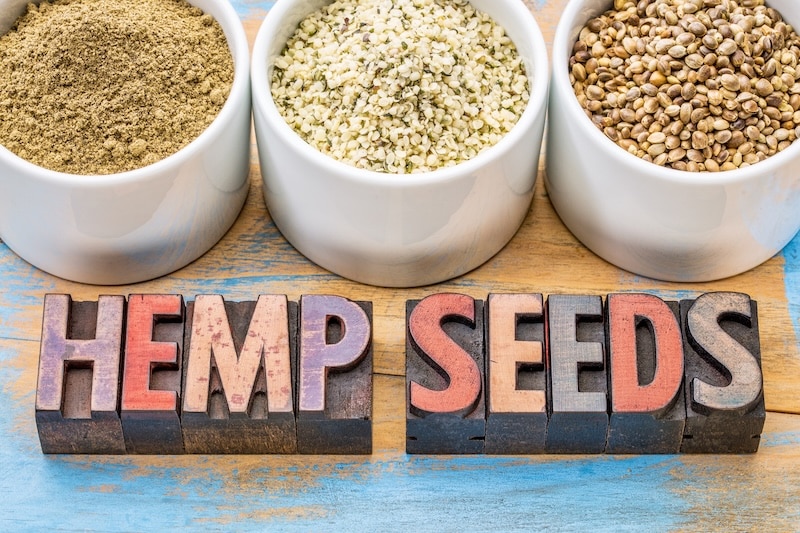
Hemp seeds are a complete protein source, meaning they contain all nine essential amino acids necessary for muscle repair and growth (House et al., 2010).
They also have an optimal omega-6 to omega-3 ratio, which supports cardiovascular health and reduces inflammation (Callaway, 2004).
- Nutrients: High in magnesium, zinc, iron, and omega-3 fatty acids.
- Fats: Rich in heart-healthy polyunsaturated fats.
- Health Benefits: Supports heart health, brain function, and muscle recovery.
2.) Peanuts (9g protein per ounce)
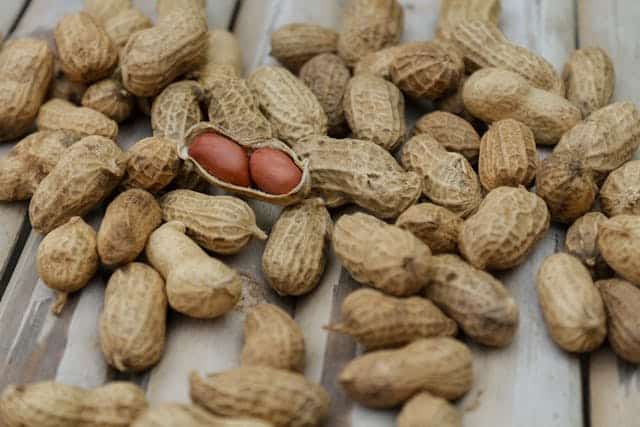
Regular peanut consumption is linked to a lower risk of heart disease and mortality thanks to its high content of heart-healthy monounsaturated fats (Chen & Blumberg, 2008).
Additionally, peanuts contain resveratrol, an antioxidant that may help protect against aging and neurodegenerative diseases (Sales & Resurrección, 2014).
- Nutrients: Packed with B vitamins, magnesium, and folate.
- Fats: Mostly monounsaturated, with some saturated fat.
- Health Benefits: Promotes heart health, muscle recovery, and energy production.
3.) Pumpkin Seeds (8g protein per ounce)
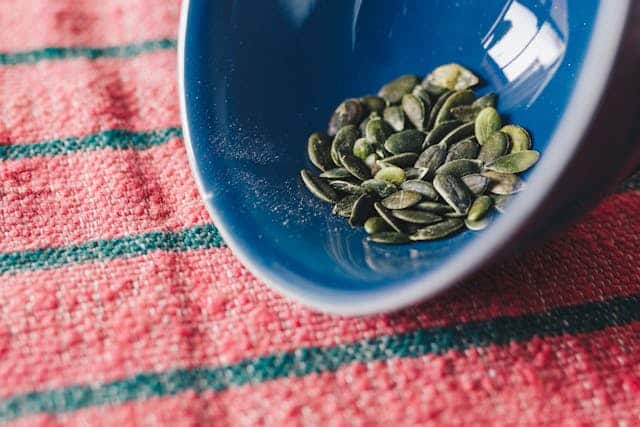
Pumpkin seeds are one of the best plant-based sources of magnesium, a mineral essential for bone health, muscle function, and cardiovascular support (Volpe, 2013).
Their high antioxidant content also helps protect cells from oxidative damage, reducing inflammation (Batool et al., 2022).
- Nutrients: Excellent source of magnesium, phosphorus, iron, and antioxidants.
- Fats: High in healthy unsaturated fats.
- Health Benefits: Supports immune function, bone health, and muscle growth.
4.) Sunflower Seeds (7g protein per ounce)
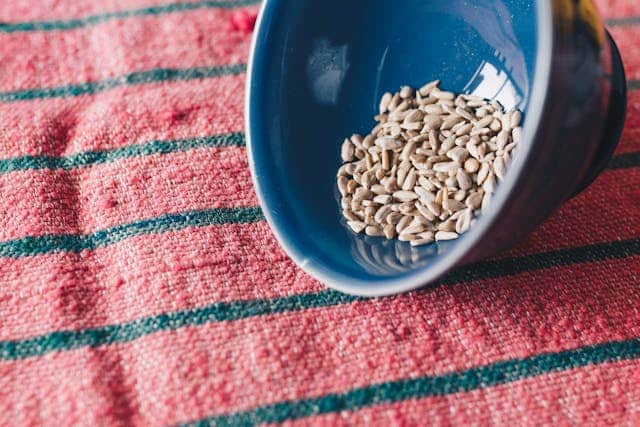
Sunflower seeds are rich in vitamin E, an antioxidant that plays a crucial role in protecting cells from damage and supporting skin health (McIntosh et al., 1987).
They also contain phytosterols, which help lower cholesterol levels and promote heart health (Jones & AbuMweis, 2009).
- Nutrients: Rich in vitamin E, selenium, and magnesium.
- Fats: Primarily monounsaturated and polyunsaturated fats.
- Health Benefits: Reduces inflammation, protects skin, and improves heart health.
5.) Almonds (6g protein per ounce)
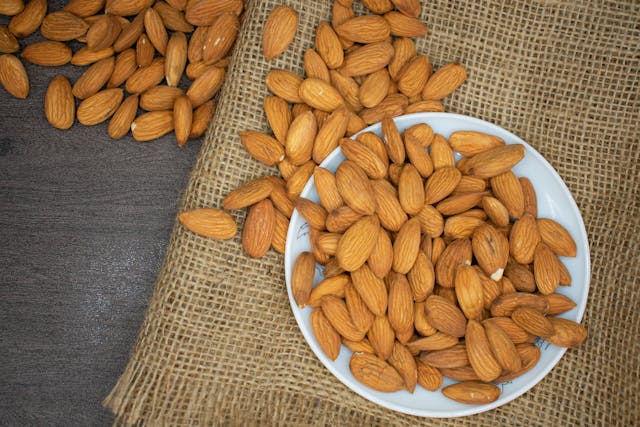
Almonds are packed with monounsaturated fats, which help reduce LDL (bad) cholesterol and lower the risk of heart disease (Jenkins et al., 2010).
They are also one of the best sources of vitamin E, which supports immune function and helps maintain healthy skin and eyes (Azzi & Stocker, 2000).
- Nutrients: High in calcium, vitamin E, and magnesium.
- Fats: Mostly monounsaturated fats.
- Health Benefits: Supports bone health, skin health, and weight management.
6.) Flaxseeds (6g protein per ounce)
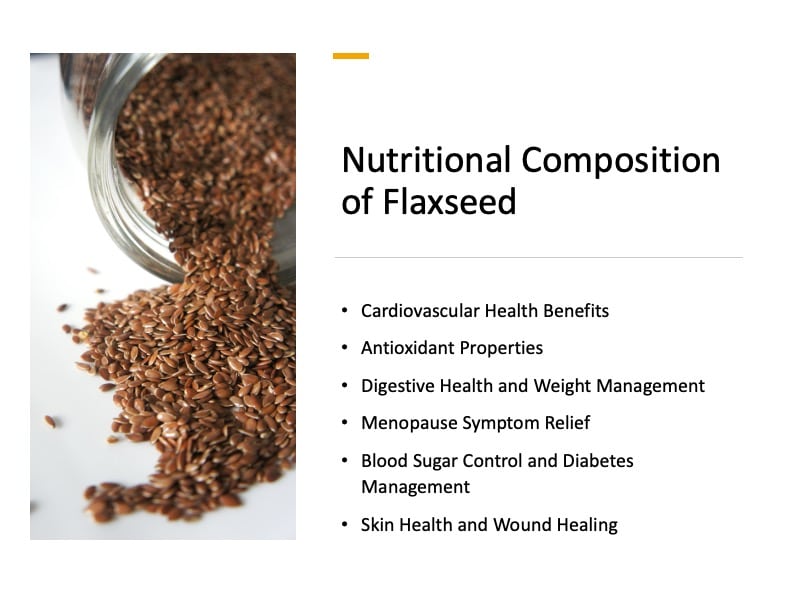
Flaxseeds are an excellent source of alpha-linolenic acid (ALA), a plant-based omega-3 fatty acid that has been shown to support heart health and reduce inflammation (Rodriguez-Leyva et al., 2010).
Their high fiber content also aids digestion and helps stabilize blood sugar levels (Riccardi & Rivellese, 1991).
- Nutrients: Loaded with fiber, omega-3 fatty acids, and lignans.
- Fats: High in polyunsaturated fats, including ALA (a plant-based omega-3).
- Health Benefits: Supports digestive health, heart health, and hormonal balance.
7.) Chia Seeds (5g protein per ounce)
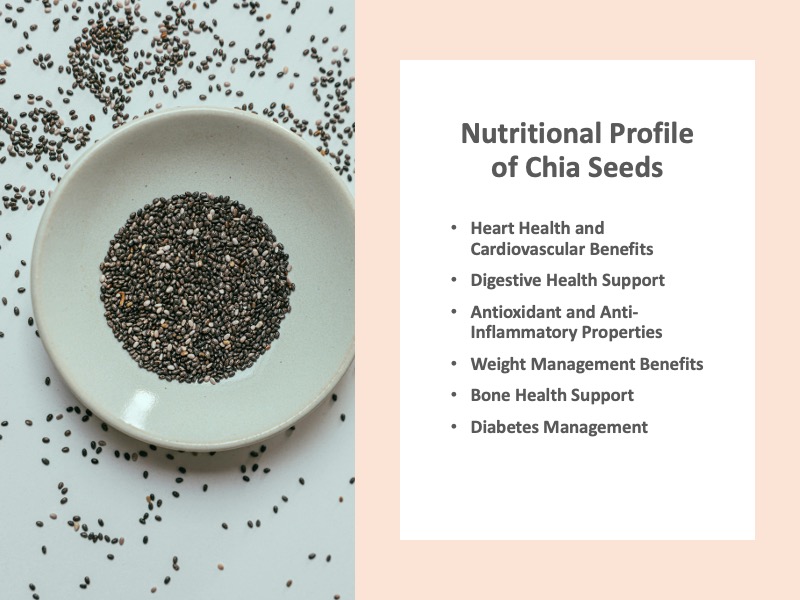
Chia seeds are one of the best plant-based sources of dietary fiber, with just one ounce providing nearly 10 grams, which supports digestive health and helps control appetite (Vuksan et al., 2017).
They are also high in ALA omega-3s, which have been shown to reduce inflammation and support heart health (Aref et al., 2024).
- Nutrients: Excellent source of fiber, calcium, and omega-3s.
- Fats: Mostly polyunsaturated, with a high ALA content.
- Health Benefits: Aids digestion, stabilizes blood sugar, and boosts energy.
8.) Cashews (5g protein per ounce)
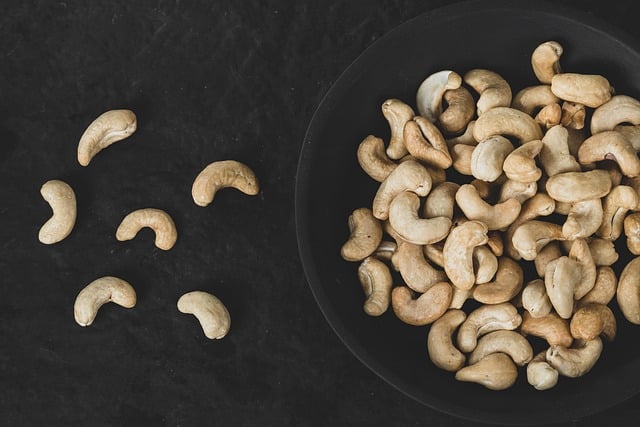
Cashews contain high levels of monounsaturated fats, which help lower bad cholesterol levels and support heart health (Mah et al., 2017).
They are also an excellent source of copper, a mineral essential for energy production, iron metabolism, and immune function (Oregon State University).
- Nutrients: Rich in copper, zinc, and B vitamins.
- Fats: Primarily monounsaturated, with some saturated fat.
- Health Benefits: Supports brain function, immunity, and energy metabolism.
9.) Walnuts (4.5g protein per ounce)
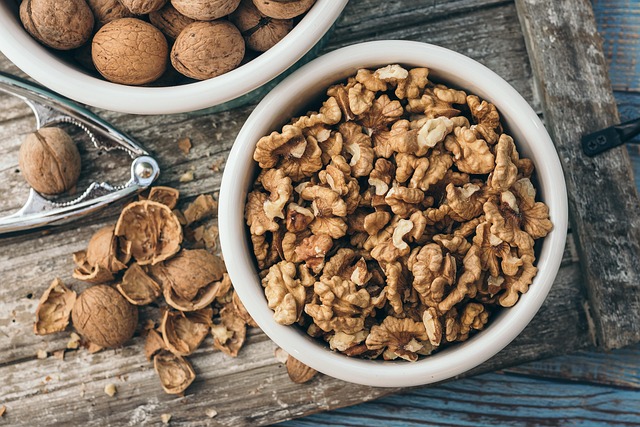
Walnuts are one of the best plant-based sources of ALA omega-3s, which have been linked to improved cardiovascular health and brain function (Rajaram et al., 2021).
Additionally, regular walnut consumption has been associated with reduced inflammation and better cognitive performance in aging adults (Arab & Ang, 2015).
- Nutrients: High in omega-3s, folate, and antioxidants.
- Fats: Mostly polyunsaturated fats, particularly ALA.
- Health Benefits: Improves brain function, reduces inflammation, and supports heart health.
10.) Pistachios (4.5g protein per ounce)
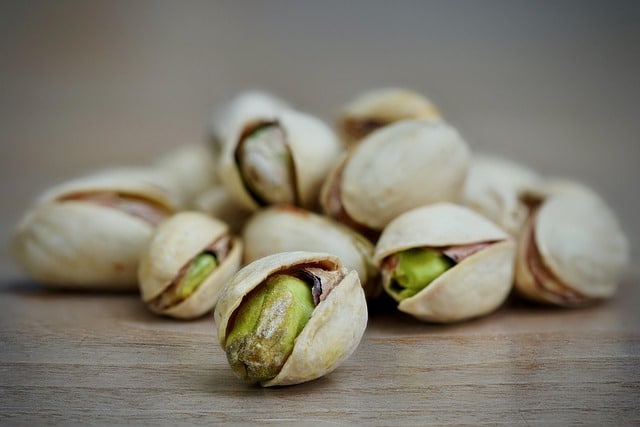
Pistachios are rich in monounsaturated fats, which help improve cholesterol levels and reduce the risk of heart disease (Kay et al., 2010).
They are also an excellent source of vitamin B6, which plays a crucial role in brain development and immune system function (Stover & Field, 2015).
- Nutrients: Packed with potassium, vitamin B6, and fiber.
- Fats: Mostly monounsaturated fats.
- Health Benefits: Enhances eye health, regulates blood sugar, and supports weight loss.
Choosing the Healthiest Nuts and Seeds for Your Diet
- Best for Protein: Hemp seeds and peanuts.
- Best for Omega-3s: Walnuts, flaxseeds, and chia seeds.
- Best for Heart Health: Almonds, pistachios, and walnuts.
- Best for Bone Health: Almonds and sunflower seeds.
- Best for Digestive Health: Chia and flaxseeds (high in fiber).
How to Add Nuts and Seeds Into Your Diet
Adding nuts and seeds to meals is simple and enhances both nutrition and flavor. Try these ideas:
- Breakfast: Sprinkle chia, flax, or hemp seeds into oatmeal, smoothies, or yogurt.
- Salads & Bowls: Add almonds, walnuts, or pumpkin seeds for crunch.
- Snacks: Create a homemade trail mix with nuts, seeds, and dried fruit.
- Cooking & Baking: Use nut flours in baking, blend cashews for creamy sauces, or make sunflower seed butter.
Final Thoughts: Why Are Nuts and Seeds Healthy?
Nuts and seeds are excellent sources of protein, healthy dietary fats, fiber, vitamins, and minerals.
Whether you’re looking for muscle-building protein, heart-healthy fats, or fiber for digestion, incorporating a variety of nuts and seeds into your diet can provide significant health benefits.
Stick to portion sizes of 1-2 ounces per day, and choose unsalted, raw, or lightly roasted options for maximum nutritional value.
This website does not provide medical advice. This website site does contain affiliate links, and purchases may earn a commission.
Read my Medical Disclaimer, Review Disclaimer, and Publishing Policies for more details. Use of this site indicates acceptance of these terms.

